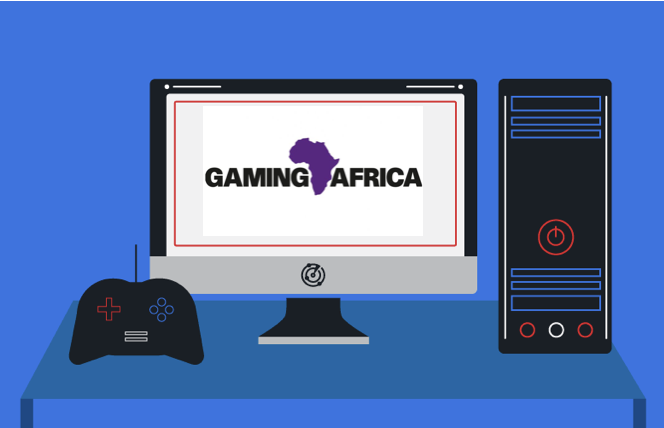March 24, 2022
Best VPNs for Garena Free Fire in 2025
One of 53 apps removed from the Google Play Store and Apple’s App Store in India under Section [...]

Disclaimer element copy: Partnerships & affiliate links help us create better content.
Across the world, the video gaming market is continuing to see periods of unprecedented growth. In 2021, the worldwide market was valued at $198.40 billion, with an estimated value of $339.95 billion by 2027.
One of the most promising new markets within the global context is sub-Saharan Africa. Along with overall population growth, rising internet usage, and factors such as the Covid-19 pandemic, which drove more individuals online, the video game market is likely to see further expansion in the coming years. Gain a stronger understanding of how the emerging African gaming market will develop and what new users need to do to protect themselves below.
The African gaming market is currently undergoing a significant growth period, with the total number of gamers jumping from 77 million in 2015 to 186 million in 2021, a 142% userbase increase. With both burgeoning youth populations and steadily increasing internet usage, South Africa, Nigeria, and Ghana are all highlighted as growth leaders.
Additionally, many new initiatives are incentivizing development throughout the continent, with the Diverse Game Developers Fund, African Game Developer Prototype Fund, and Black Game Developer Fund all aiming to push game creation in Africa to new heights. Carry1st, an established South African game development company, raised $20 million in funding from the likes of Google, a16z, and Avenir.
Once centered around internet cafes and pay-per-play arcade-style formats, gamers in Africa are increasingly turning to mobile options. The majority of the population focuses on mobile gaming, with 95% of total users reporting mobile-heavy gaming. Much of this growth stems from the Covid-19 pandemic bringing more people online and increasing digitization trends across the continent.
For now, Africa remains the continent with the lowest internet penetration rate. 41% of individuals in Africa reported using the internet occasionally or having access to an internet-connected smartphone. In contrast, the US has an 89% usage rate.
The lack of a reliable internet connection (or connection at all) throughout much of Africa suppresses the ability to game, chat, or participate in any internet activity that many around the world take for granted. That being said, internet engagement is spreading year by year, as is infrastructure investment from companies like Nigeria’s Spectranet. As more people have internet access across the continent, the user base will skyrocket.
While this growth is positive news, mobile cybercrime within the continent is becoming more complex at the same time. While total users across the continent are relatively low, Africa has the fastest-growing telephone and Internet networks in the world. When combined with weak networks and lax security regulation, this growing demand is putting users at risk.
Cybercrime is at an all-time high in Africa, with attacks like phishing/smishing, ransomware, and botnets popping up frequently. Attacks from as far as China have been seen in recent years, and local mobile banking attacks remain common. As Africans use mobile devices heavily for everything from gaming to banking, staying vigilant and having safety precautions in place is crucial.
Regardless of where you reside, staying safe from cyberattacks should be a top priority. Keeping operating systems and apps up-to-date, using a password manager, and keeping Bluetooth and WiFi off when not in use are other relatively simple ways to stay safe on mobile devices. Additionally, using a mobile VPN is an extremely effective way to both encrypt traffic and protect against malware attacks.
| Cookie | Duration | Description |
|---|---|---|
| __cfduid | 1 month | The cookie is used by cdn services like CloudFlare to identify individual clients behind a shared IP address and apply security settings on a per-client basis. It does not correspond to any user ID in the web application and does not store any personally identifiable information. |
| cookielawinfo-checkbox-advertisement | 1 year | The cookie is set by GDPR cookie consent to record the user consent for the cookies in the category "Advertisement". |
| cookielawinfo-checkbox-analytics | 1 year | This cookies is set by GDPR Cookie Consent WordPress Plugin. The cookie is used to remember the user consent for the cookies under the category "Analytics". |
| cookielawinfo-checkbox-necessary | 1 year | This cookie is set by GDPR Cookie Consent plugin. The cookies is used to store the user consent for the cookies in the category "Necessary". |
| cookielawinfo-checkbox-non-necessary | 1 year | This cookie is set by GDPR Cookie Consent plugin. The cookies is used to store the user consent for the cookies in the category "Non-necessary". |
| cookielawinfo-checkbox-performance | 1 year | This cookie is set by GDPR Cookie Consent plugin. The cookie is used to store the user consent for the cookies in the category "Performance". |
| viewed_cookie_policy | 1 year | The cookie is set by the GDPR Cookie Consent plugin and is used to store whether or not user has consented to the use of cookies. It does not store any personal data. |
| Cookie | Duration | Description |
|---|---|---|
| cookielawinfo-checkbox-functional | 1 year | The cookie is set by GDPR cookie consent to record the user consent for the cookies in the category "Functional". |
| cookielawinfo-checkbox-others | 1 year | No description |